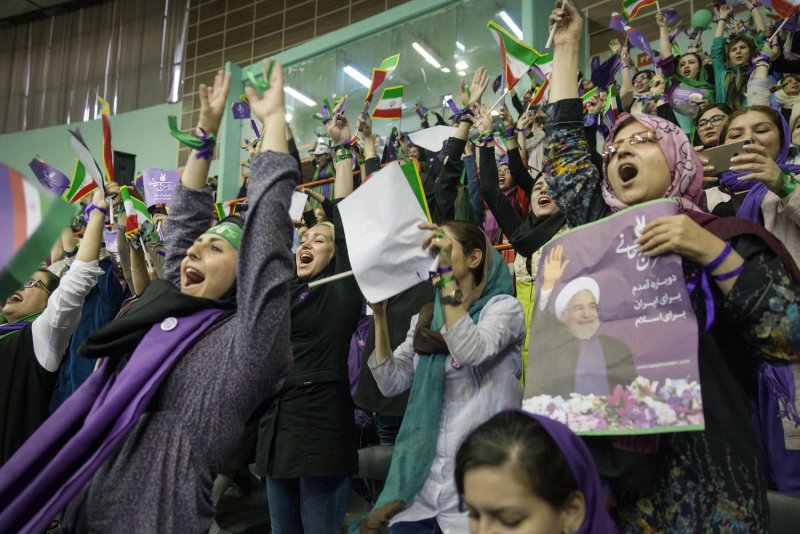Iran could be one of the more ignored players in the global oil game, a report found, just days before presidential elections. Photo by Maryam Rahmanian/UPI |
License Photo
May 16 (UPI) -- With presidential elections coming Friday, and an assertive U.S. president in play, Iran is the wild card in the global crude oil game, analysis found.
Iranian President Hassan Rouhani leads in a race to secure a second term, though his closest rival, conservative cleric Ibrahim Raisi, has the tacit support of Ayatollah Ali Khamenei, the country's supreme leader.
As was the case when Rouhani took the helm from Mahmoud Ahmadinejad, the economy is a focus of the Iranian election. Under Rouhani, about 1 million barrels per day of Iranian oil is back on the market because of sanctions relief from a multilateral nuclear agreement. Though economic growth is strong in real terms, analysis from RBC Capital Markets found Rouhani's critics pointing to potential that's failed to deliver.
"His conservative critics contend that the nuclear deal has failed to deliver the promised economic dividend, especially in the all-important area of job creation," Helima Croft, the global head of commodity strategy, said in the report. "They point to figures showing that unemployment has increased during Rouhani's tenure, with youth unemployment rising from 24 percent to 30 percent."
Much of the Iranian population is young given the drain from the 1980s conflict with Iraq.
In November, the country, a member of the Organization of Petroleum Exporting Countries, became the only party to an effort to balance an over-supplied crude oil market that's allowed to produce more oil in order to regain a market share lost to those sanctions. Khamenei, meanwhile, has touted a so-called resistance economy that weans Iran off oil revenue.
RBC reported consumption of Iranian oil from key markets like the European Union, China and India are near the levels they were before tighter sanctions were enacted in 2011.
For Washington, U.S. President Donald Trump has threatened to walk away from the multilateral agreement with Tehran and offered a more aggressive military line than his predecessor. That could heighten the risk of confrontation, a situation that could play out in the oil market.
"Hence, we reiterate our call that Iran remains one of the most underappreciated political risks in the oil market," the Royal Bank of Canada's report read. "Moreover, we contend that the real risk is not of additional Iranian barrels coming online, but rather of a drop-off due to geopolitical developments."
Secondary sources reporting to OPEC said Iran produced around 3.8 million bpd in April, a 7 percent increase from last year's average.















